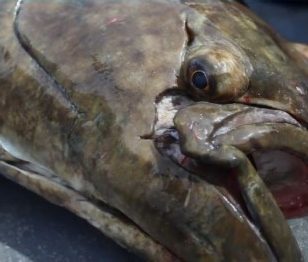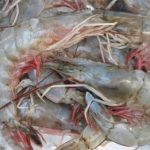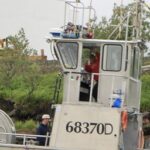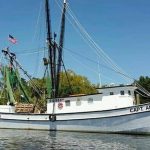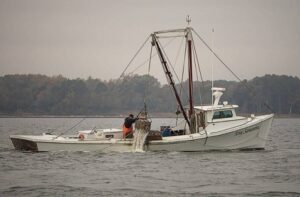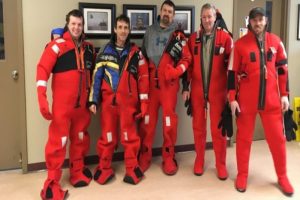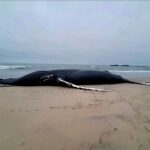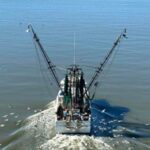Daily Archives: February 19, 2013
Search called off for missing Nova Scotia fishermen
Forty hours after an “exhaustive search” began for five young fishermen whose vessel capsized in turbulent seas off Liverpool on Sunday night, it ended. Read more
FV Miss Ally Woods Harbour NS. Skipper Katlin Nickerson, Billy Hatfield, Joel Hopkins, Cole Nickerson, Tyson Townsend.
New England groundfishermen are taking the gloves off in the fight for survival
 175 Fishermen to Congress: Failed Government Policies Caused the Fishing Crisis, We’ve Done Nothing Wrong
175 Fishermen to Congress: Failed Government Policies Caused the Fishing Crisis, We’ve Done Nothing Wrong
– “The forced transition of our New England groundfish fishery to catch share management and hard TACs came with all sorts of rosy promises of resource abundance and economic stability,” they write. They also noted that many businesses were unable to survive the transition.
– Rather than producing the promised benefits, the transfer of the groundfishery to sector management has led to a prolonged period of economic instability. “There is no stability. There are only repeated, record reductions in catch limits. Prosperity is a discarded dream.”
– They blame the current state of the groundfishery on failed government management, writing: “Three weeks ago, NMFS Regional Administrator John Bullard told us at the Council meeting that this was our day of reckoning. This is not our day of reckoning – we’ve done nothing wrong to reckon. We didn’t cause this problem.” Instead, they maintain that the government does not have the science and data necessary to properly manage the fishery. “For too long we’ve been subjected to the volatility and futility of pretending to know the unknowable.”
“For nearly a decade now our fishery has fished at or below every catch limit set by the government on every stock. We lived within their quotas, but it is now our businesses, our families and our communities that will be paying the price.”
“Government cannot expect our industry to continue to be subjected to drastic cuts in allowable catches while placing additional, government-imposed expenses upon us.”
– They noted that, as the current catch share management system was being implemented, the Northeast Seafood Coalition publicly made clear that adequate federal funding and catch allocations would be needed for the system to properly function. They added: “Sure enough, here we are – less than 3 years after sector implementation – and the agency is telling us there is not enough money to monitor or enough fish to sustain our fishery. It’s difficult for many of us to believe that this was just a coincidence.” Read more and read the original letters with the signing fishermen
So theres this new petition floating around to Close the NMFS Northeast Regional Office!
Dear Chairwoman Mikulski and members of the Senate Committee on Appropriations:
On January 26, 2013, the Associated Press reported that John Bullard, the Northeast Regional Administrator for the National Marine Fisheries Service (NMFS), stated, “failures by fishery managers are ultimately to blame for weak stocks that haven’t rebounded.” The AP went on to quote Mr. Bullard as saying, “we set the rules and clearly the rules have failed. There’s no other conclusion.”
•We commend Mr. Bullard for his honest, direct and accurate description of the current reality.
Mr. Bullard also commented on changes in the workplace, “A plant shuts down. A person who’s worked there for 30 years all of the sudden goes to the factory door and it’s closed. You learn a new trade and you adapt…People adapt and they survive.” As fishermen, we are owners and employees of small businesses, and we fully understand the difficulties and pain that Mr. Bullard describes.
•We believe that just as there are consequences for failures in business, so too should there be consequences for failures in government. Read more Link to the Petition
Everyone here knows the five men who set out to do what generations before them have done. Faith is tangible by Phonse Jessome
 Woods Harbour – People who draw from the sea for a living know the sea sometimes takes back. Today the toll is more than many in this community can bear.
Woods Harbour – People who draw from the sea for a living know the sea sometimes takes back. Today the toll is more than many in this community can bear.
For while faith is in abundance on this wharf, hope is not. It is a word being repeated over and over. Yet it sounds more like a curse than a prayer. For as soon as it is raised by one it is cut down by another.
Can there be hope for five fellow fishermen lost at sea in a winter gale? Five men of faith whose boat toppled in waves that loomed like living mountains in the night. Read more
Doing their research: Siskiyou County officials study Coos Bay salmon project
Eyed-egg injection is a process by which salmon eggs are incubated for several months in a hatchery (or other controlled setting) until the eggs begin to develop an eye – an indicator that the egg is within a few weeks of becoming a free swimming fish – and then taken to a stream and planted under gravel in the natural streambed where it will finish its development. The process was pioneered by fisheries biologists in Alaska as a method to help rebuild decimated fish populations, and has shown relatively high success rates there. Read more
Pew’s “ocean saving” efforts for the rest of the world
The Pew Oceans Commission was such smashing success for the US ocean that they are now applying it to the world. Perhaps they’ll do the solar system next, then maybe the universe? It’s really security making to know that those people with all that money are on the side of nature and Mother Earth, isn’t it? BLUE CHARITY BUSINESS… IN BRUSSELS 2013 – Week 7 What a week! Read more
Nature Notes: Maryland seafood
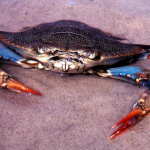 ONE OF THE PERKS of living in Maryland is having fresh seafood available throughout the year. The Chesapeake Bay and Mid-Atlantic coast are noted for blue crabs, oysters, rockfish, bluefish and flounder. But did you know that some of the other seafood you may be enjoying may also come from Maryland? Read more
ONE OF THE PERKS of living in Maryland is having fresh seafood available throughout the year. The Chesapeake Bay and Mid-Atlantic coast are noted for blue crabs, oysters, rockfish, bluefish and flounder. But did you know that some of the other seafood you may be enjoying may also come from Maryland? Read more
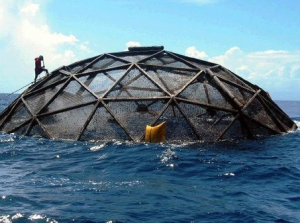
Gulf of Mexico fish farms move another step closer to reality
The Gulf of Mexico Fishery Management Council, which advises the National Oceanic and Atmospheric Administration’s National Marine Fisheries Service on fish and fishing in the Gulf, recently approved the final draft of its proposed rule to regulating offshore Gulf marine aquaculture. After some more federal review and an expected public comment period this summer, the idea is that sometime next year businesses could begin applying for permits to establish red snapper, grouper and other finfish-farms in Gulf federal waters, which in Louisiana extend from three to 200 miles offshore. Read more
Horseshoe crab debate pinches N.J. lawman, environmentalists
 Last month, New Jersey state Sen. Jeff Van Drew, a Democrat who represents parts of Cape May and Cumberland counties, introduced legislation that would lift a ban on harvesting horseshoe crabs that’s been in place since 2008. Van Drew’s bill would face strong opposition from environmental groups. It is in committee in both houses of the Legislature, and no vote has been scheduled. “The moratorium might be sexy and cool,” Van Drew said recently, “but it just doesn’t make sense.” “A lot of these people who supported the ban never even saw a horseshoe crab in their life,” he said. “It was just so cool to say, ‘Oh, boy, we’re saving the environment.’ ” Read more
Last month, New Jersey state Sen. Jeff Van Drew, a Democrat who represents parts of Cape May and Cumberland counties, introduced legislation that would lift a ban on harvesting horseshoe crabs that’s been in place since 2008. Van Drew’s bill would face strong opposition from environmental groups. It is in committee in both houses of the Legislature, and no vote has been scheduled. “The moratorium might be sexy and cool,” Van Drew said recently, “but it just doesn’t make sense.” “A lot of these people who supported the ban never even saw a horseshoe crab in their life,” he said. “It was just so cool to say, ‘Oh, boy, we’re saving the environment.’ ” Read more
Possible a new fault was opened up from BP disaster in Gulf, says oceanographer — “Potential for an indefinite release of oil”? (thank you Kristine)
 A persistent, mysterious “oil sheen” in the Gulf of Mexico near the site of BP’s Deepwater Horizon disaster grew to more than seven-miles long and one-mile wide during a recent stretch of calm seas, based on aerial observations made by a former NASA physicist turned environmental activist. Read more
A persistent, mysterious “oil sheen” in the Gulf of Mexico near the site of BP’s Deepwater Horizon disaster grew to more than seven-miles long and one-mile wide during a recent stretch of calm seas, based on aerial observations made by a former NASA physicist turned environmental activist. Read more
Minuscule amounts of medicines in rivers and streams can alter the biology and behavior of fish and other marine animals.
 The findings, published online Thursday in the journal Science, add to the mounting evidence that minuscule amounts of pharmaceuticals are environmental contaminants can alter the biology and behavior of fish and other marine animals. ‘‘I think people are starting to understand that pharmaceuticals are environmental contaminants,’’ said Dana Kolpin, a researcher for the U.S. Geological Survey who is familiar with the study. Read more
The findings, published online Thursday in the journal Science, add to the mounting evidence that minuscule amounts of pharmaceuticals are environmental contaminants can alter the biology and behavior of fish and other marine animals. ‘‘I think people are starting to understand that pharmaceuticals are environmental contaminants,’’ said Dana Kolpin, a researcher for the U.S. Geological Survey who is familiar with the study. Read more
Fishing’s decline looms; will fish consumers notice?
GLOUCESTER, Mass. — His city’s best fishing days are long past it, but lifelong Gloucester resident Ron Gilson still sees what once was when he drives past what remains. “This is the lowest point,” he declared on a February day. “Tomorrow will be lower.” “They’re (govt) going to wipe it out!” said Gilson. “The only thing that’s going to be the same is the ocean you’re looking at.” In May, New England’s fishermen will again see a cut to the number of fish they can catch, this time so deeply that the historic industry’s existence is threatened from Rhode Island to Maine. But as hard as the cuts are likely to hit fishing communities, local seafood eaters may not notice at all. In the region’s markets, grocery stores and restaurants, imported fish dominate, and the cuts make that less likely to change. Read more
February day. “Tomorrow will be lower.” “They’re (govt) going to wipe it out!” said Gilson. “The only thing that’s going to be the same is the ocean you’re looking at.” In May, New England’s fishermen will again see a cut to the number of fish they can catch, this time so deeply that the historic industry’s existence is threatened from Rhode Island to Maine. But as hard as the cuts are likely to hit fishing communities, local seafood eaters may not notice at all. In the region’s markets, grocery stores and restaurants, imported fish dominate, and the cuts make that less likely to change. Read more
NOAA’s fishing policies under investigation
![]() After issuing a series of investigative reports exposing excessive enforcement on the part of federal fisheries agents, the U.S. Commerce Department’s Office of Inspector General has now turned to auditing how NOAA carried out and implemented policies that have transformed fisheries into commodity markets — and are being blamed for job losses and consolidation throughout the industry. Read more
After issuing a series of investigative reports exposing excessive enforcement on the part of federal fisheries agents, the U.S. Commerce Department’s Office of Inspector General has now turned to auditing how NOAA carried out and implemented policies that have transformed fisheries into commodity markets — and are being blamed for job losses and consolidation throughout the industry. Read more
Editorial: Rollover quota spotlights absurd 2013 cod cuts
 Bullard’s own interpretation — backed by NOAA’s general counsel, Lois Schiffer, and her shady law enforcement gang — of the Magnuson-Steven Act, which suggests he had no option to extend the current year’s 22-pecent interim cut for a second year. That stand is widely refuted by the Gloucester-based Northeast Seafood Coalition, and by several members of Congress, which put the Magnuson-Stevens’ mandates in place and urged Bullard to reconsider. Read more
Bullard’s own interpretation — backed by NOAA’s general counsel, Lois Schiffer, and her shady law enforcement gang — of the Magnuson-Steven Act, which suggests he had no option to extend the current year’s 22-pecent interim cut for a second year. That stand is widely refuted by the Gloucester-based Northeast Seafood Coalition, and by several members of Congress, which put the Magnuson-Stevens’ mandates in place and urged Bullard to reconsider. Read more


































